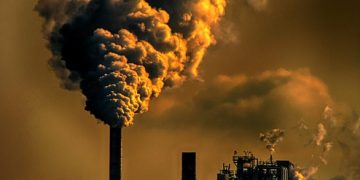The Unavoidable Truth: Understanding the Root Causes of Global Warming
Global warming is one of the most pressing issues facing our planet today. The consequences of climate change are becoming increasingly evident, with rising temperatures, extreme weather events, and melting ice caps all being attributed to human activities. In order to effectively address this crisis, it is important to understand the root causes of global warming and take action to mitigate its effects.
What is Global Warming?
Global warming refers to the long-term increase in Earth’s average surface temperature due to human activities, primarily the burning of fossil fuels and deforestation. These activities release greenhouse gases such as carbon dioxide and methane into the atmosphere, which trap heat and cause the planet to warm.
The Role of Greenhouse Gases
Greenhouse gases are essential for maintaining Earth’s temperature and climate, but human activities have significantly increased their concentration in the atmosphere. Carbon dioxide is the most abundant greenhouse gas, primarily produced through the burning of fossil fuels for energy and transportation. Methane is another potent greenhouse gas, released through agricultural practices such as livestock farming and rice cultivation.
The Impact of Deforestation
Deforestation is another major contributor to global warming, as trees play a crucial role in absorbing carbon dioxide from the atmosphere. When forests are cleared for agriculture, logging, or urban development, this carbon is released back into the atmosphere, exacerbating the greenhouse effect and contributing to climate change.
The Consequences of Global Warming
The consequences of global warming are far-reaching and profound. Rising temperatures are leading to more frequent and severe heatwaves, droughts, and wildfires. Melting ice caps and glaciers are causing sea levels to rise, threatening coastal communities and ecosystems. Extreme weather events such as hurricanes and floods are becoming more frequent and intense, displacing millions of people and causing widespread destruction.
Addressing the Root Causes
In order to address global warming, it is essential to reduce our reliance on fossil fuels and transition to renewable energy sources such as solar, wind, and hydropower. Investing in energy efficiency and conservation measures can also help reduce greenhouse gas emissions and mitigate the effects of climate change. Additionally, protecting and restoring forests is crucial for sequestering carbon and preserving biodiversity.
The Role of Government and Industry
Government policies and regulations play a key role in addressing global warming, by setting emissions targets, promoting renewable energy, and incentivizing sustainable practices. Industry also has a responsibility to reduce its carbon footprint and adopt more environmentally friendly practices. Collaboration between governments, businesses, and individuals is essential for achieving meaningful progress in the fight against climate change.
Taking Action at the Individual Level
While government and industry have a significant role to play in addressing global warming, individuals can also make a difference through their everyday choices and actions. Simple steps such as reducing energy consumption, using public transportation, and recycling can all help reduce greenhouse gas emissions and mitigate the effects of climate change. By making sustainable choices in our daily lives, we can all contribute to a healthier planet for future generations.
Conclusion
Global warming is a complex and urgent issue that requires a coordinated effort from all sectors of society. By understanding the root causes of climate change and taking action to reduce our impact on the environment, we can work towards a more sustainable future for our planet. It is up to each and every one of us to do our part in addressing global warming and protecting the health and well-being of future generations.
Together, we can make a difference and create a more sustainable world for ourselves and for future generations to come.





